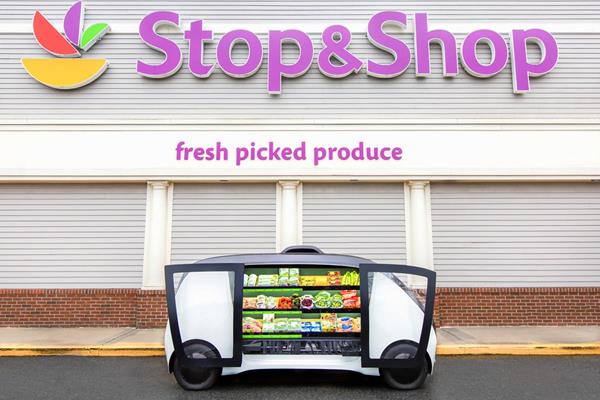“The future of grocery may come down to how we buy things like toilet paper and avocados,” write John Rousseau and Rob Girling, partners in the strategy and design firm Artefacts, in Fast Company.
How do these two commodities differ? Toilet paper is standardized: you have your favorite brand, and it will be the same whether it comes via shopping cart or delivery truck. Rousseau and Girling call such purchases “transactional.”
Every avocado, on the other hand, is different in qualities ranging from size to ripeness to external appeal. Rousseau and Girling call these “experiential purchases.”


The convulsions introduced by the coronavirus, these authors suggest, will push wary consumers toward getting their transactional purchases by delivery, while they will still want to select their experiential purchases in person.
“We may see the growth of specialty retailers, farmers markets, and smaller markets focused exclusively on grocery, and new hybrid service models that blend the best of all worlds,” Rousseau and Girling write.
Other industry sources say similar things. Paul Vogel, president of QSI International, LLC, BB #:158115 says (as quoted in the upcoming September issue of Produce Blueprints): “People will care less about price and more about getting what they need. The model of the future is probably the small ethnic or specialty grocer. We’re looking at a landscape where nothing will be the same.”
Matthew Clark, president of LA Produce, BB #:332163 quoted in the same article, agrees. With online ordering, “you pretty much have to keep what’s delivered, even if it’s not what you want. There’ll be online commerce in ten years, but not for all purchases.”
In the short term (1 to 5 years), Rousseau and Girling foresee current COVID-19 restrictions—one-way aisles, mask requirements—to stay in place and become more refined. Yet, he says, “safer stores—even when well designed—may not be good experiences.” This trend could motivate consumers to get more of their standardized items delivered.
In the longer term (5-10 years), Rousseau and Girling foresee a possible return to previous trends as fears of the virus subside. Some of the present innovations may continue, while others will fade away (which ones is anyone’s guess).
Because 25 percent of the America population will be over 65 by 2030, the authors also say retail groceries may focus more on “personalized wellness.”
They write, “If today’s store is designed to foster poor [health] choices, the store of the future may be the opposite—where systems are optimized for both individual and societal wellness, while also maintaining consumer privacy. . . .
There is an opportunity to nudge shoppers toward healthier choices via changes to shelf placement, user flow, or algorithm.”
In addition, sustainability concerns are likely to move the industry away from single-use packaging toward “more universal containers designed for multiple refill cycles.”
In the longer term (over 10 years), “artificial intelligence, and delivery will likely lead to very different grocery experiences,” according to Rousseau and Girling. “The current supermarket paradigm will be subject to more disruption over the next 10-15 years than in the previous 100 years.”
Innovations could include automatic delivery.
“These services would effectively eliminate food deserts by making fresh food available almost anywhere,” say the authors.
A still greater development would be virtual shopping: you look at the display case, pick the exact piece of fruit you want, and have it delivered to you an hour later.
The Artefact partners’ ideas are interesting, but not entirely convincing. The pandemic has shown that the standard supermarket, unlike many other types of business, is thriving in difficult times, suggesting that the virus in itself will not introduce overwhelming changes.
Furthermore, if you are going to the store to pick out your avocados, why not just buy toilet paper as well?
Finally, “experiential” has a double meaning. On the one hand, it means that you want to actually pick up and examine the apples and oranges you buy. But it also means that for many people, grocery shopping is a pleasurable experience in its own right. During the pandemic, many people have found that it’s the only outing they’re going to get.
It’s great to speculate about the future of the supermarket, but it may be determined less by technological wizardry than by the fact that people still like to go out and get food for themselves.



